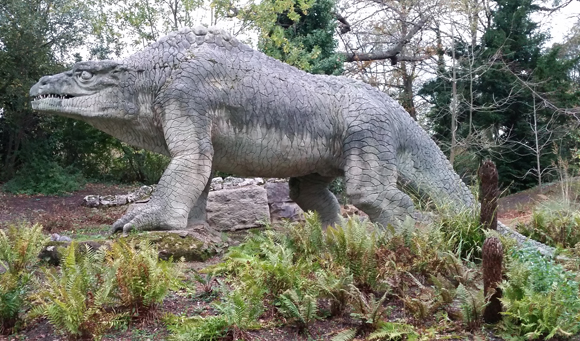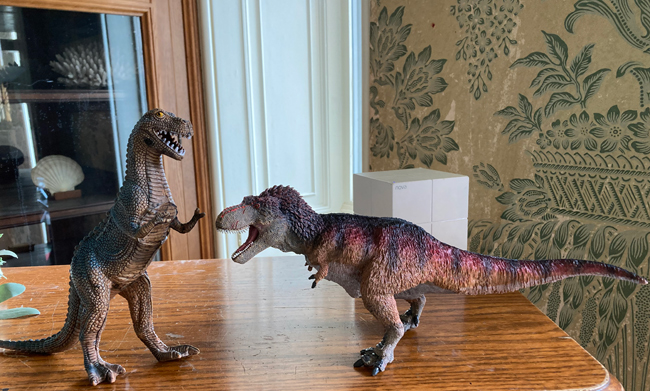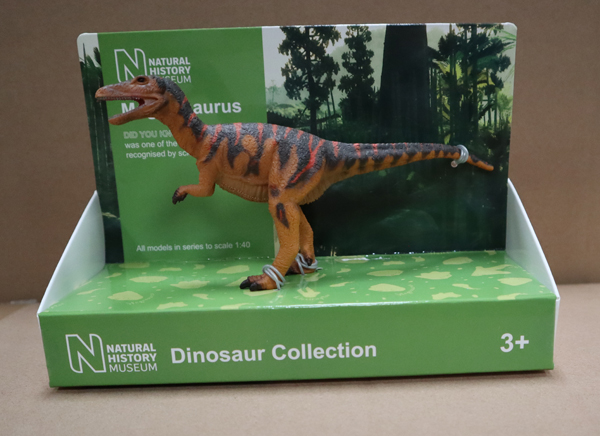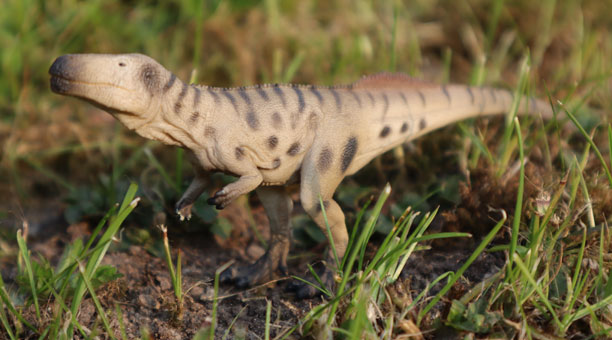How Accurate are Dinosaur Models?
Dinosaur models are extremely popular today. However, how accurate are dinosaur models? Or do they reflect the scientific inaccuracies of yesteryear?
In 1824 the first dinosaur was scientifically described (Megalosaurus bucklandii). This dinosaur and others such as Iguanodon and the armoured dinosaur Hylaeosaurus were described before the term Dinosauria came into being. With the Great Exhibition of 1851 being moved to South London under the direction of the Crystal Palace Company, the sculptor Benjamin Waterhouse Hawkins was employed to create life-size prehistoric animal statues to populate the site. It is thought that the first commercial prehistoric animal figures were commissioned due to the popularity of the sculptures created by Benjamin Waterhouse Hawkins. They were designed to help educate and inform.

The Megalosaurus statue at Crystal Palace a dinosaur from 1854. Megalosaurus was the first dinosaur to be scientifically described (1824). Benjamin Waterhouse Hawkins was commissioned to build life-size statues to populate the grounds of the new site for the Great Exhibition. These statues proved to be so popular with the public that models of these figures were offered for sale. Picture credit: Everything Dinosaur.
Picture credit: Everything Dinosaur
How Accurate are Dinosaur Models?
Many dinosaur models today are manufactured with the same lofty ambitions – to educate and inform. However, the majority are aimed at children and designed for creative, imaginative play. The makers of these models can still strive for scientific accuracy, to create a figure that reflects current scientific thinking. To their credit, many manufacturers do achieve a high degree of accuracy with their products. As our ideas about dinosaurs have changed, then so have dinosaur toys and models changed to reflect these developments.

How our perceptions regarding Tyrannosaurus rex have changed. A model from the 1970s compared to a Safari Ltd feathered Tyrannosaurus rex (2015). Picture credit: Everything Dinosaur.
Picture credit: Everything Dinosaur
Megalosaurus bucklandii
Numerous models of Megalosaurus bucklandii have been produced over the years. This Jurassic theropod may not be as well-known as the likes of Tyrannosaurus rex, but Megalosaurus models do reflect changes in how we perceive the Dinosauria in general. For example, the London Natural History Museum commissioned a range of dinosaur figures. These models were designed under the stewardship of Professor Paul Barrett.
The Megalosaurus model in the range is more than twenty years old. It does show the dinosaur with its tail off the ground, an accurate reflection of dinosaur posture. Megalosaurus is depicted as a biped. The quadrupedal stance assumed by Sir Richard Owen and reflected in the Crystal Palace dinosaurs has gone. The feet are oversized. This is a common issue with dinosaur models. The feet are made bigger so that the model is more stable.

It might be the 200th anniversary of the scientific description of Megalosaurus, but the Natural History Museum Megalosaurus figure is still going out of production. Perhaps it will be replaced with a new line which might include an updated Megalosaurus model. Picture credit: Everything Dinosaur.
Picture credit: Everything Dinosaur
The model manufacturer CollectA introduced an updated version of Megalosaurus bucklandii in 2021. It replaced a Megalosaurus figure that had been introduced a decade earlier. The body proportions are different, and the dinosaur has lips. The position of the arms has changed, and the model has some quills running along the back of its tail. This is a more accurate reflection of the science of palaeontology. Although the designer has still used their imagination to help develop this figure.
A review of the CollectA 2021 Megalosaurus figure: CollectA Megalosaurus Model Reviewed.

The CollectA Age of Dinosaurs Popular Megalosaurus in ambush figure. The muted tones would have provided excellent camouflage for this Jurassic hunter. How accurate are dinosaur models? Picture credit: Everything Dinosaur.
Picture credit: Everything Dinosaur
To view the range of CollectA Age of Dinosaurs Popular figures in stock at Everything Dinosaur: CollectA Dinosaur Models.
Our Views About Dinosaurs Have Changed
Our understanding of the Dinosauria has changed dramatically since the middle of the 19th century. When Benjamin Waterhouse Hawkins was designing his statues the science of palaeontology was very much in its infancy. Sir Richard Owen, who was later to help establish what we now refer to as the London Natural History Museum acted as the scientific consultant for the project. The trend for consulting palaeontologists to help design dinosaur models continues today. So, when determining how accurate are dinosaur models, some models do not reflect modern scientific thinking. However, there are many dinosaur models in the market that do.
Today, customers have a lot of choice when it comes to prehistoric animal figures. There are lots of manufacturers. Some are better than others, but there is a growing trend to produce prehistoric animal models that at least attempt to reflect some of the latest ideas from palaeontologists.
For dinosaur models and prehistoric animal figures: Find Dinosaur and Prehistoric Animal Model Ranges.

